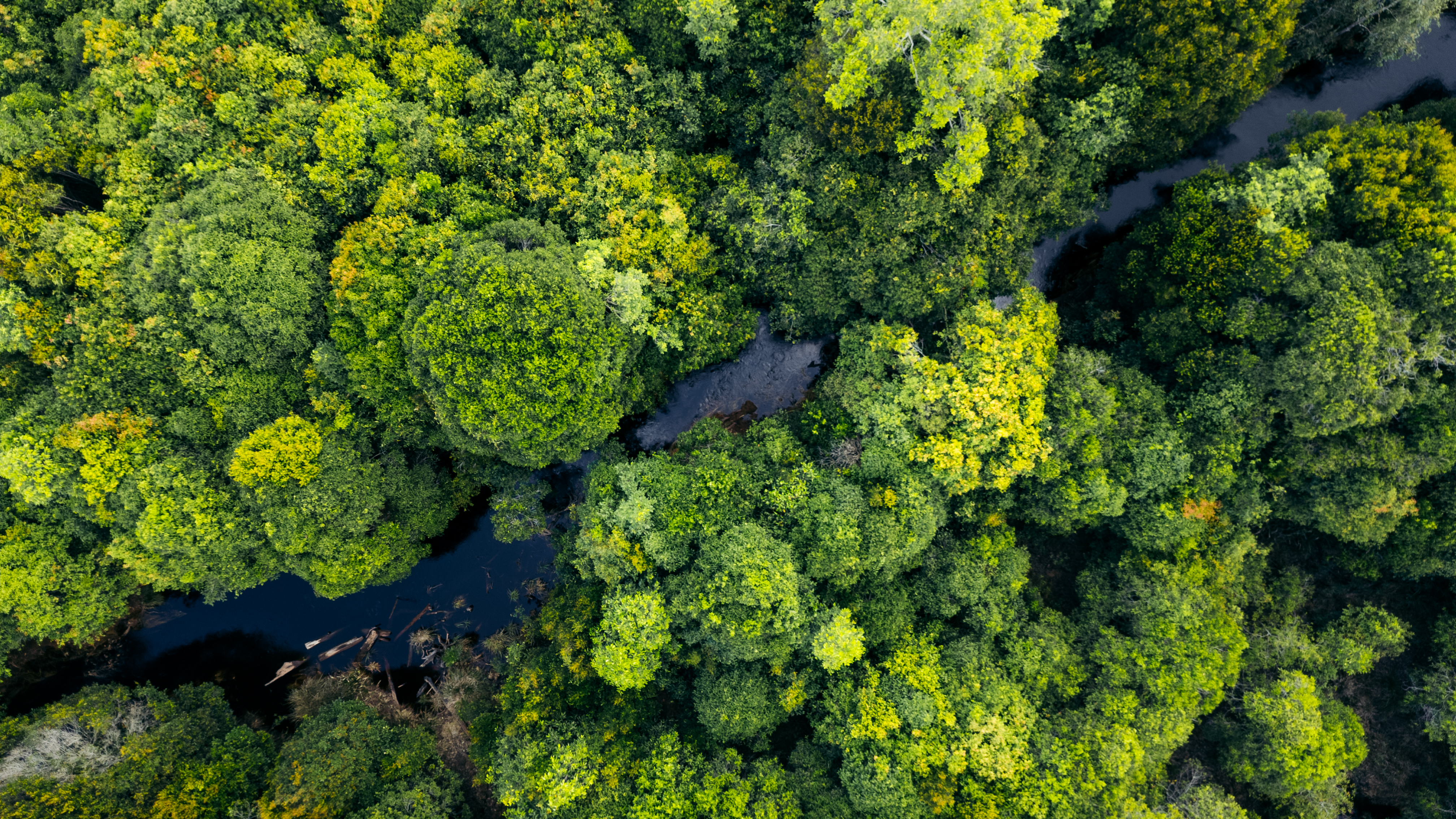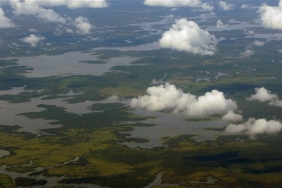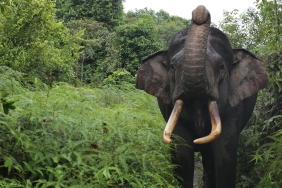IMPLEMENTATION OF FCP BY APP IS STILL INADEQUATE
February 5, 2018 - Marking the 5th anniversary of Asia Pulp and Paper's (APP) stated Forest Conservation Policy (FCP) commitments, the civil society groups whose logos appear with this statement make a joint statement that APP is not yet on track and that progress in implementing these commitments has been inadequate.
1. Inadequate supply from plantations and complicity in deforestation1.
Despite the FCP's insistence that companies stop using wood from natural forests, Sinar Mas Group (SMG) or APP is raising finance and securing permits to build a new pulp mill with the potential to increase wood consumption by 84%. APP's plantation forests have never produced that much wood, and calculations by civil society groups show that the concessions will not be able to meet this demand unless sustainability principles are followed. If wood supply falters, it is feared that APP will return to depleting natural forests, exacerbating environmental and social impacts.
In fact, over the past 5 years, SMG/APP has continued to lose conservation areas to deforestation by third parties. In fact, coverage by the Associated Press and Straits Times revealed that PT Muara Sungai Landak (MSL), which has been clearing natural forest and peatland in West Kalimantan since at least 2014, is connected to Sinar Mas Forestry, although APP denies the connection.
2. Inaction on community conflict resolution2.
APP claims to have resolved more than 42 percent of conflicts with communities. However, it does not publicly disclose the total number of conflicts, how many have been resolved, and how they were resolved. This information has been repeatedly requested by civil society groups to APP. Referring to the experience of groups that have been assisting communities affected by APP's presence in Riau, Jambi and South Sumatra, only a few of the hundreds of conflicts have been resolved. In cases where agreements have been reached, there are still problems with the quality and implementation of those agreements.
Furthermore, many communities that have lost land, forests and livelihoods due to APP's operations are not even aware of the company's commitment to recognize their rights and resolve community grievances.
3. Inaction on restoration and swapping of concessions in degraded peat with mineral soil, potentially disturbing natural forests and community-managed areas3.
One year after the FCP declaration, in 2014 APP committed to restoring 1 million hectares of ecosystems in Indonesia - again, without a clear plan and benchmarks for progress. APP's wood suppliers have caused extensive damage in many of the Indonesian government's priority peatland restoration areas, so plantation development by draining peat must stop, and restore it immediately. However, APP has no plan for sustainable peat management, either for economic activities without draining peatlands or restoring them with natural vegetation, to control APP's contribution to climate change and stop peatland subsidence that can cause flooding.
The option of a land swap to compensate for the mineral land provided to the company by the government has the potential to increase deforestation or conflict with communities. APP currently controls at least 2.6 million hectares of land in Indonesia, but this mechanism opens the door to hundreds of thousands of additional hectares under its control acquired without any transparent process or public scrutiny of whether the area is natural forest or already managed by communities.
4. Inaccurate information on its relationship with timber suppliers and lack of transparency on key FCP implementation matters4.
Before and after the FCP announcement in 2013, APP did not provide full information to stakeholders about its relationships with 27 of its supplier companies and referred to them as "independent", hiding its relationships with at least 25 of them. During the catastrophic 2015 fires, APP used this "independent" claim to evade responsibility for the massive fires that occurred in the concession areas surrounding its new mill (OKI Mill). In addition to the aforementioned PT Muara Sungai Landak, the Associated Press and Sraits Times have also reported on SMG/APP's concealed relationship since 2013 with PT Bangun Rimba Sejahtera in Bangka Belitung.
In fact, since the FCP announcement APP has misled stakeholders about key information related to FCP implementation, such as the actual capacity of the OKI Mill, and in fact built a much larger capacity mill without convincing evidence of adequate sustainable supply. APP's behavior has widened the trust gap with civil society groups, including those who have been working with APP on FCP implementation.
5. Lack of independent monitoring
Since its launch, there has been no independent verification of the FCP implementation progress. Instead, APP has continued to make unilateral claims of progress-without-verification through its marketing campaigns. While civil society groups believe that Forest Stewardship Council (FSC) certification is the best way to obtain independent and objective verification of a company's environmental, social and governance performance, this tool cannot be used at this time, either against SMG/APP, its affiliates or its supply partners, as the FSC disassociated APP in 2007 in connection with the company's massive forest destruction, making it the first of a small number of companies to be disassociated by the FSC.
In light of the above, civil society groups recommend that APP:
1. Open up its pulp production and wood supply data to independent audit and involve at least the civil society groups submitting this statement as observers during the audit.
2. Disclose detailed data on land conflicts across APP and its supplier companies' concessions, including the number of conflicts, how many have been resolved, the standards and processes used to resolve each conflict, and resolve all conflicts within a timeframe agreed upon with affected and affected communities.
3. Publicly disclose potential areas for land swaps to the timber supply review as mandated by the FCP and engage at least the civil society groups who submitted this statement as observers for the review.
4. Publicly disclose a detailed plan for phasing-out peat drainage in its concessions, implementing the plan as a restoration responsibility for the peat that has been destroyed so far, even if it has been swapped for new areas.
5. Publicly disclose any links between APP, Sinar Mas, and any of the company's staff or officers and other forestry concessions in Indonesia to reveal their environmental and social footprint.
6. Agree to the implementation of the roadmap for ending disassociation with the FSC developed by the FSC with the support and input of civil society groups, including those submitting this joint statement.





